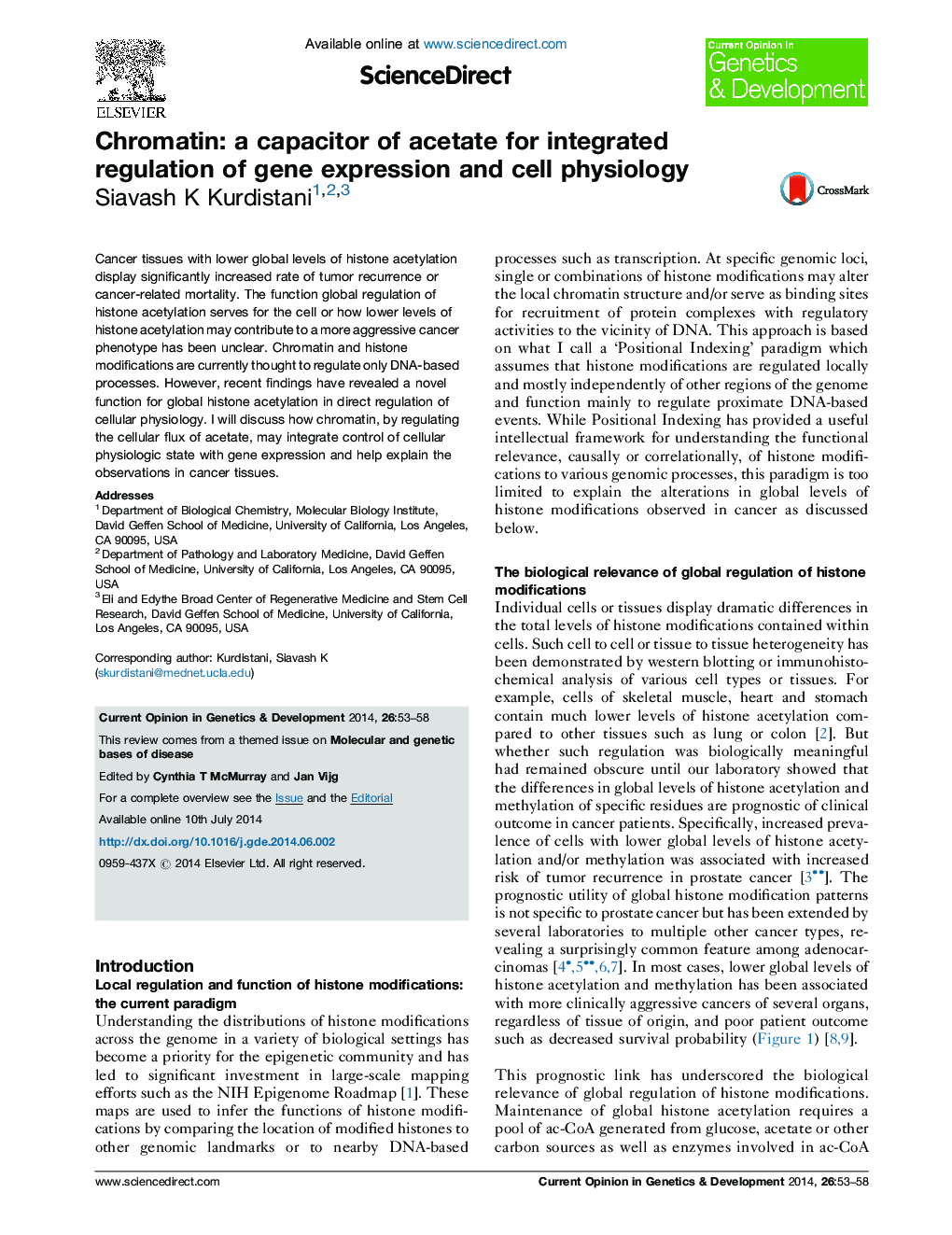| Article ID | Journal | Published Year | Pages | File Type |
|---|---|---|---|---|
| 5893351 | Current Opinion in Genetics & Development | 2014 | 6 Pages |
Cancer tissues with lower global levels of histone acetylation display significantly increased rate of tumor recurrence or cancer-related mortality. The function global regulation of histone acetylation serves for the cell or how lower levels of histone acetylation may contribute to a more aggressive cancer phenotype has been unclear. Chromatin and histone modifications are currently thought to regulate only DNA-based processes. However, recent findings have revealed a novel function for global histone acetylation in direct regulation of cellular physiology. I will discuss how chromatin, by regulating the cellular flux of acetate, may integrate control of cellular physiologic state with gene expression and help explain the observations in cancer tissues.
